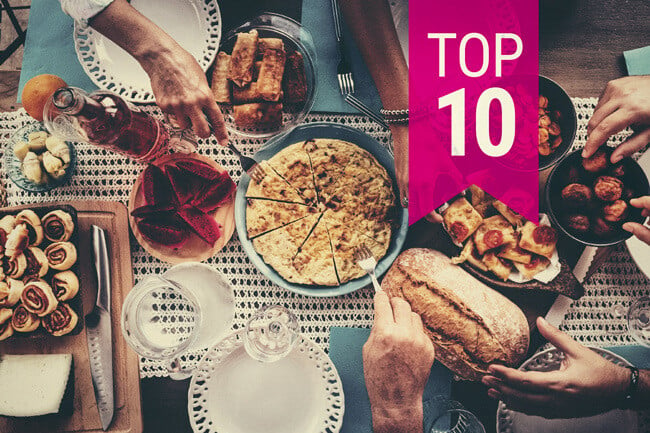.

Cannabis and Its Role in Chemotherapy
Chemotherapy is an uncomfortable course of treatment that can leave patients physically and mentally drained. Might cannabis or its derivatives be of some help in this area?
Contents:
Cannabis has long been used in an effort to benefit the body and mind, with our ancestors invoking it for all manner of holistic purposes. Today, cannabis is under constant survey for its therapeutic potential, with researchers eager to determine if, and how, the herb and its derivatives can be exploited to reduce the impact of various conditions.
Cancer patients undergoing chemotherapy, in particular, tend to have a vested interest in whether cannabis can help them deal with the side effects of their treatment. This comes as no surprise, as chemo is notorious for ravaging the body.
Read on as we break down what we know so far about using cannabis for chemotherapy.
What Is Chemotherapy?
Chemotherapy is a medical treatment that uses powerful chemicals to kill rapidly growing cells in the body. While it is most commonly used to treat cancer, it can also be used to treat bone marrow diseases and immune disorders.
There are many different chemotherapy agents on the market, and they all work by interfering with the natural cell cycle (the process cells go through to fully form and mature). Since cancers are defined by the abnormal growth of cells, these drugs can help to slow the growth of tumours and inhibit their metastasis (or spread) to some degree.
How exactly chemotherapy agents interfere with the cell cycle varies from one drug to another. While we can’t look at all chemotherapy agents in detail in this article, some of the most common types of chemotherapy agents used to treat cancer include:
- Alkylating agents: These drugs work by damaging a cell's DNA, thereby inhibiting its ability to reproduce. Unfortunately, these drugs can also damage the DNA of other, healthy cells. When they damage cells in the bone marrow, alkylating agents may interrupt the body’s ability to produce new blood cells. This, in rare cases, can cause leukaemia. Alkylating agents are commonly used to treat lung, breast, and ovarian cancer, lymphoma, leukaemia, sarcoma, and more.
- Nitrosoureas: Nitrosoureas are a special class of alkylating agent that, unlike the drugs we mentioned previously, can travel to the brain by crossing the blood–brain barrier. Hence, these drugs are typically used to treat various kinds of brain tumours.
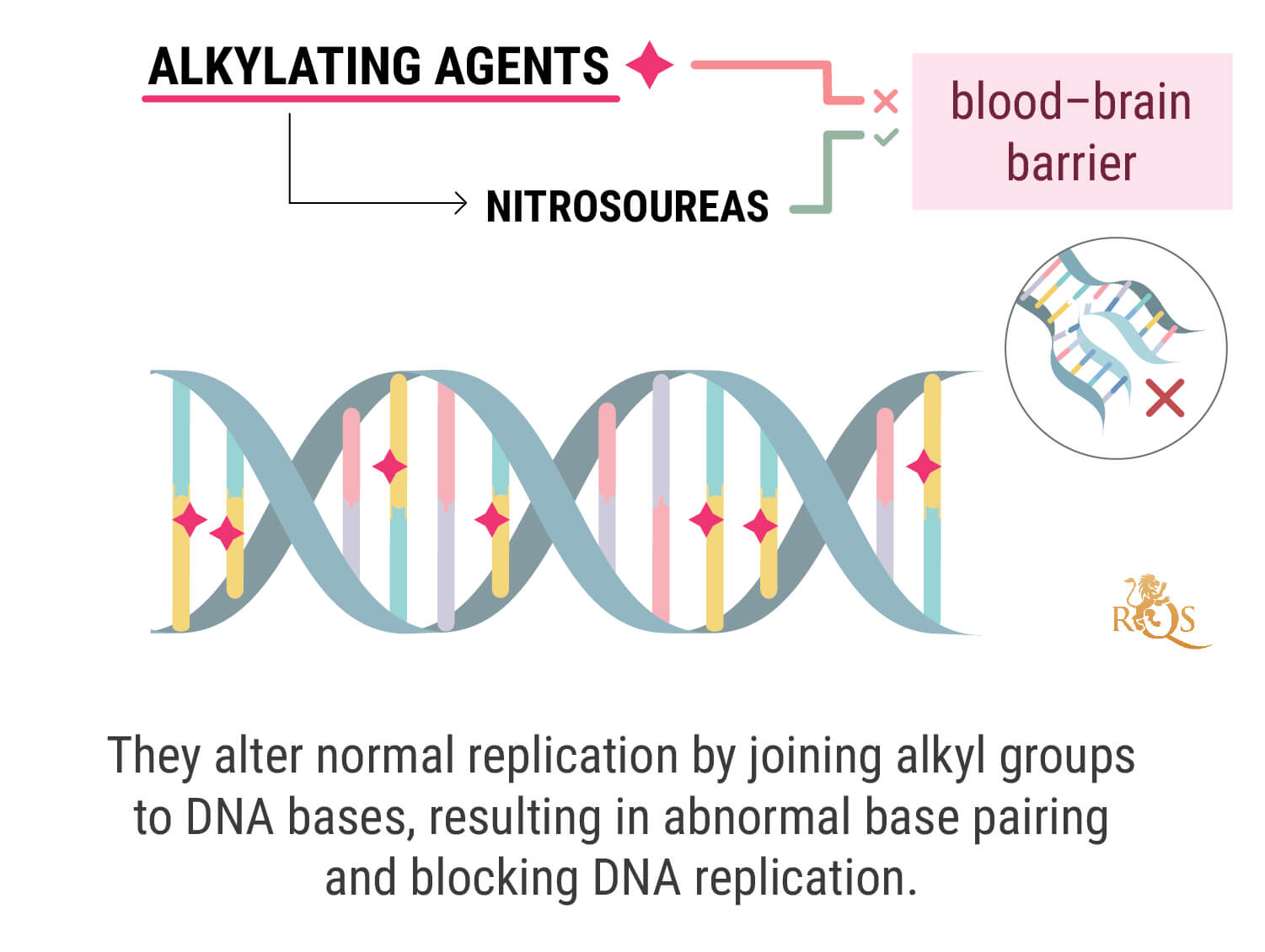
- Antimetabolites: These drugs interfere with the cell cycle by working as substitutes for the normal building blocks of RNA and DNA. Like alkylating agents, antimetabolites hinder the reproduction of cancer cells. They are typically used to treat leukaemia, breast, and ovarian cancer, as well as intestinal tract tumours.
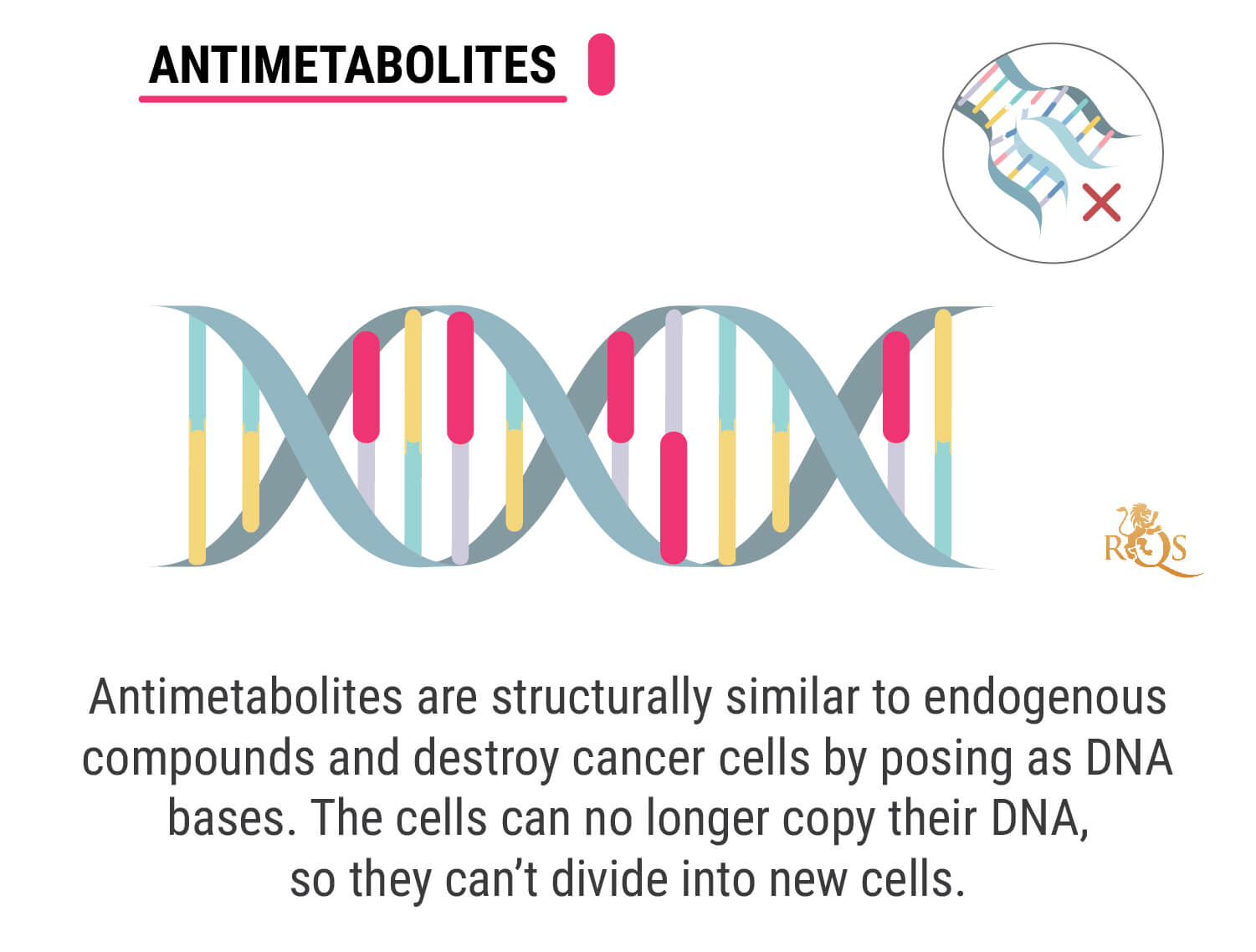
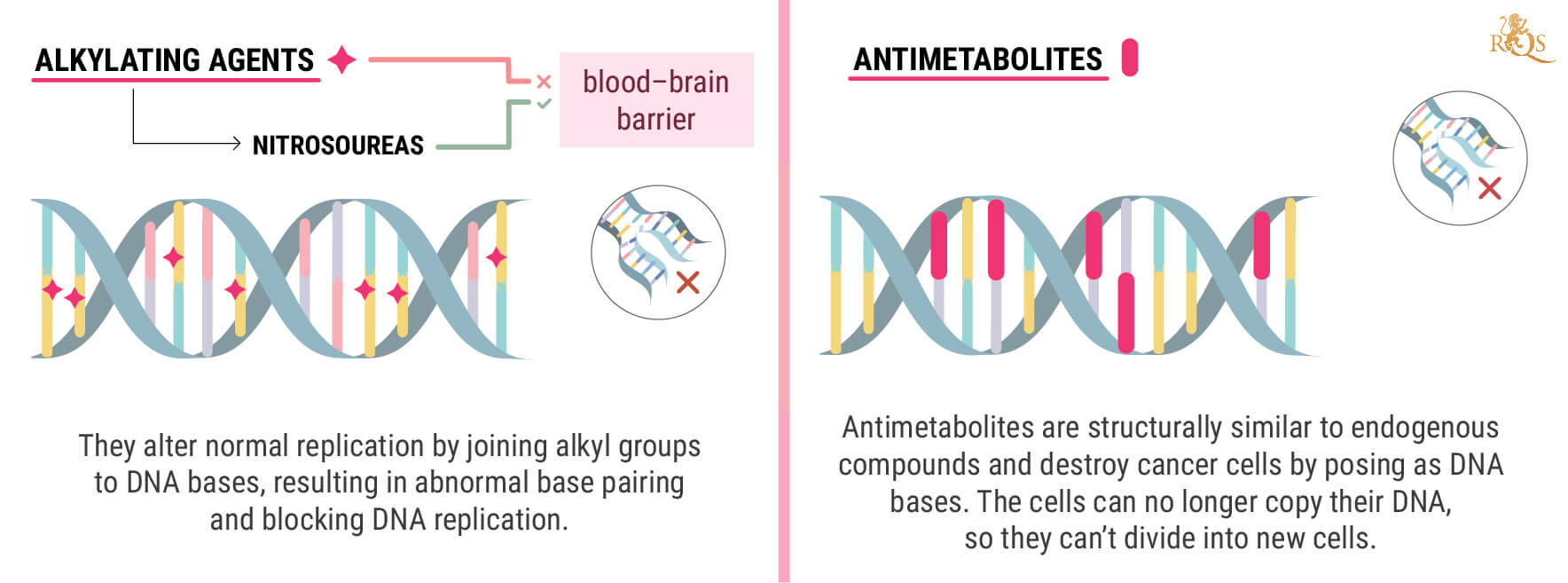
- Antitumour antibiotics: Similar to antimetabolites and alkylating agents, antitumour antibiotics work by changing the DNA inside cells to prevent them from growing and reproducing. Anthracyclines, for example, are a special kind of antitumour antibiotic that inhibits the activity of the enzymes involved in replicating a cell’s DNA. In high doses, these drugs can cause permanent damage to the heart.
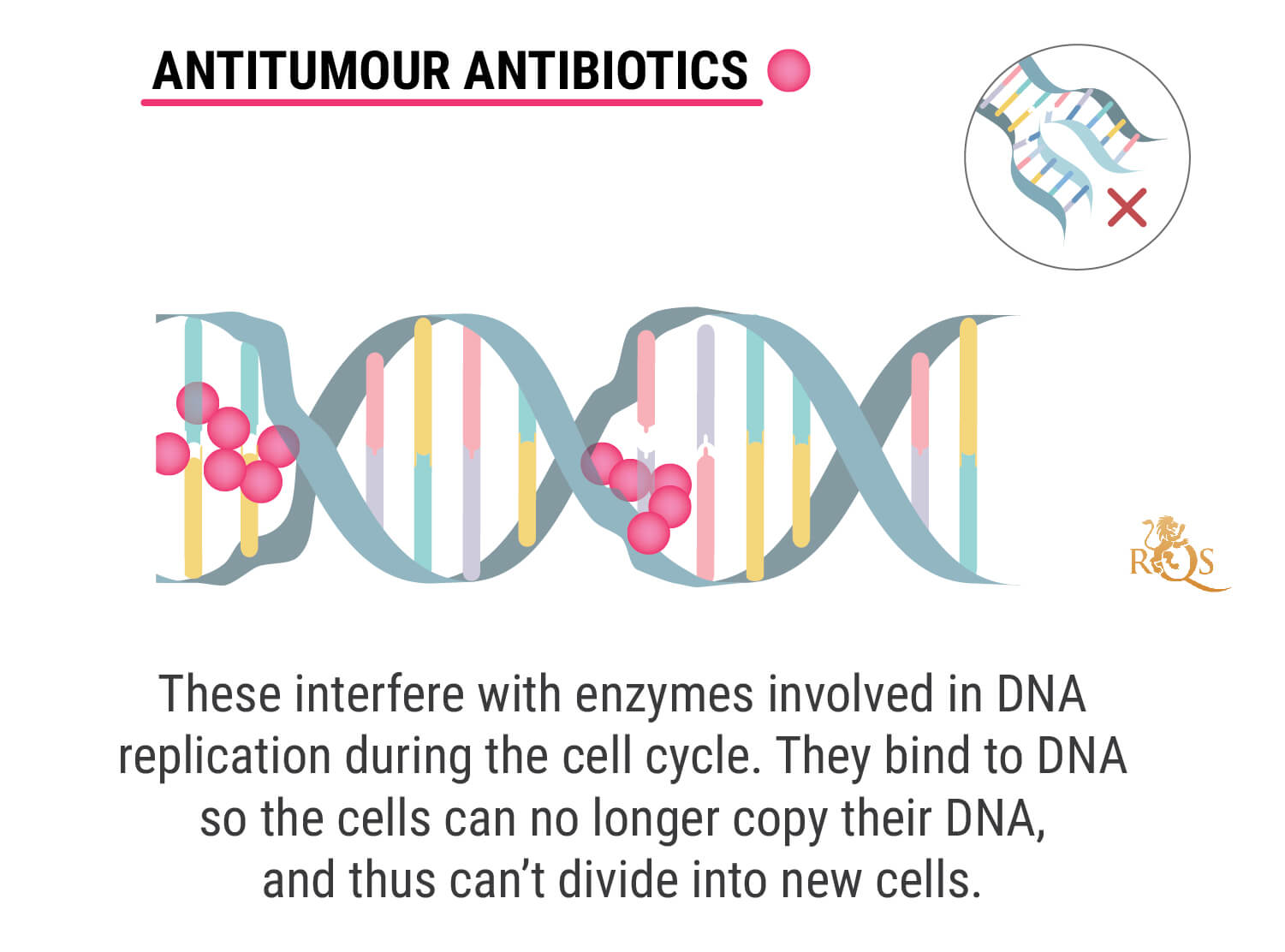
- Topoisomerase inhibitors: These plant alkaloids, as their name suggests, work by inhibiting topoisomerases; enzymes that help separate strands of cell DNA, facilitating their reproduction. They are typically used to treat leukaemia, as well as lung, gastrointestinal, colorectal, pancreatic, and ovarian tumours.
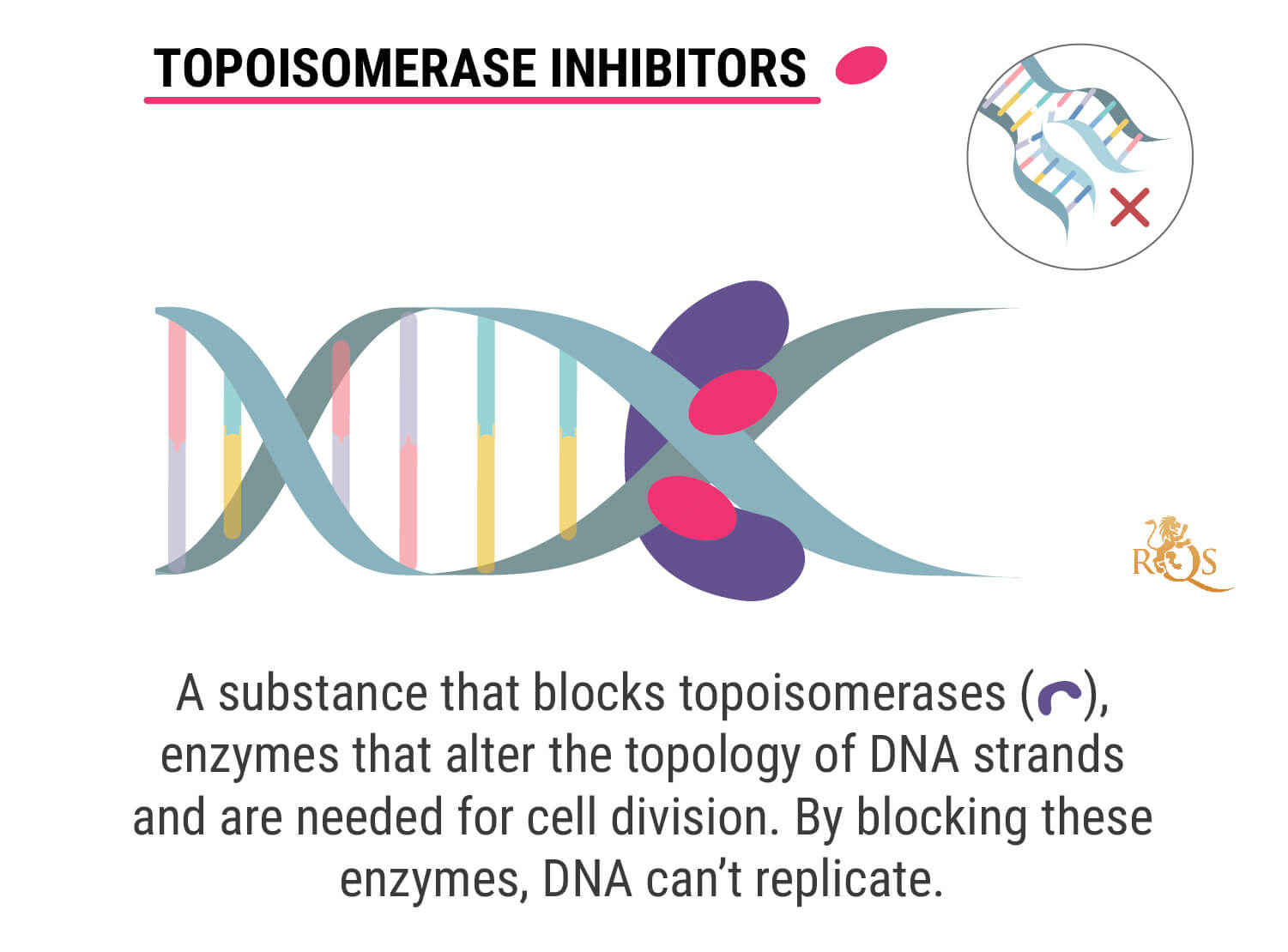
- Mitotic inhibitors: These drugs inhibit the splitting of cells, a process known as mitosis, which plays a critical role in the reproduction of certain types of cancer.
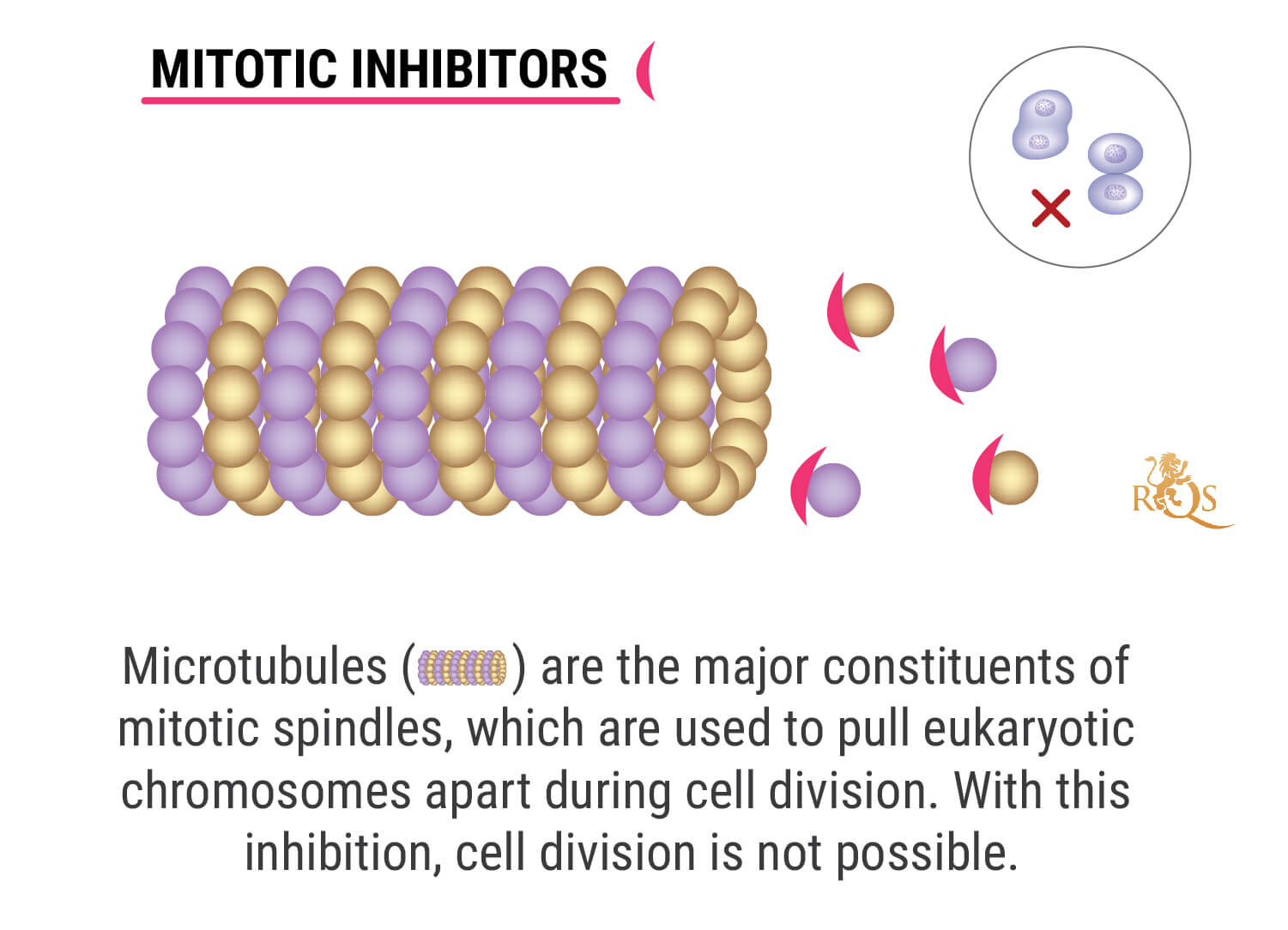
- Corticosteroids: While corticosteroids are commonly used to treat a wide variety of symptoms and conditions, they can also be used in the treatment of cancer, both as chemotherapy agents and to help prevent nausea and vomiting, a common side effect of many of the drugs mentioned above.
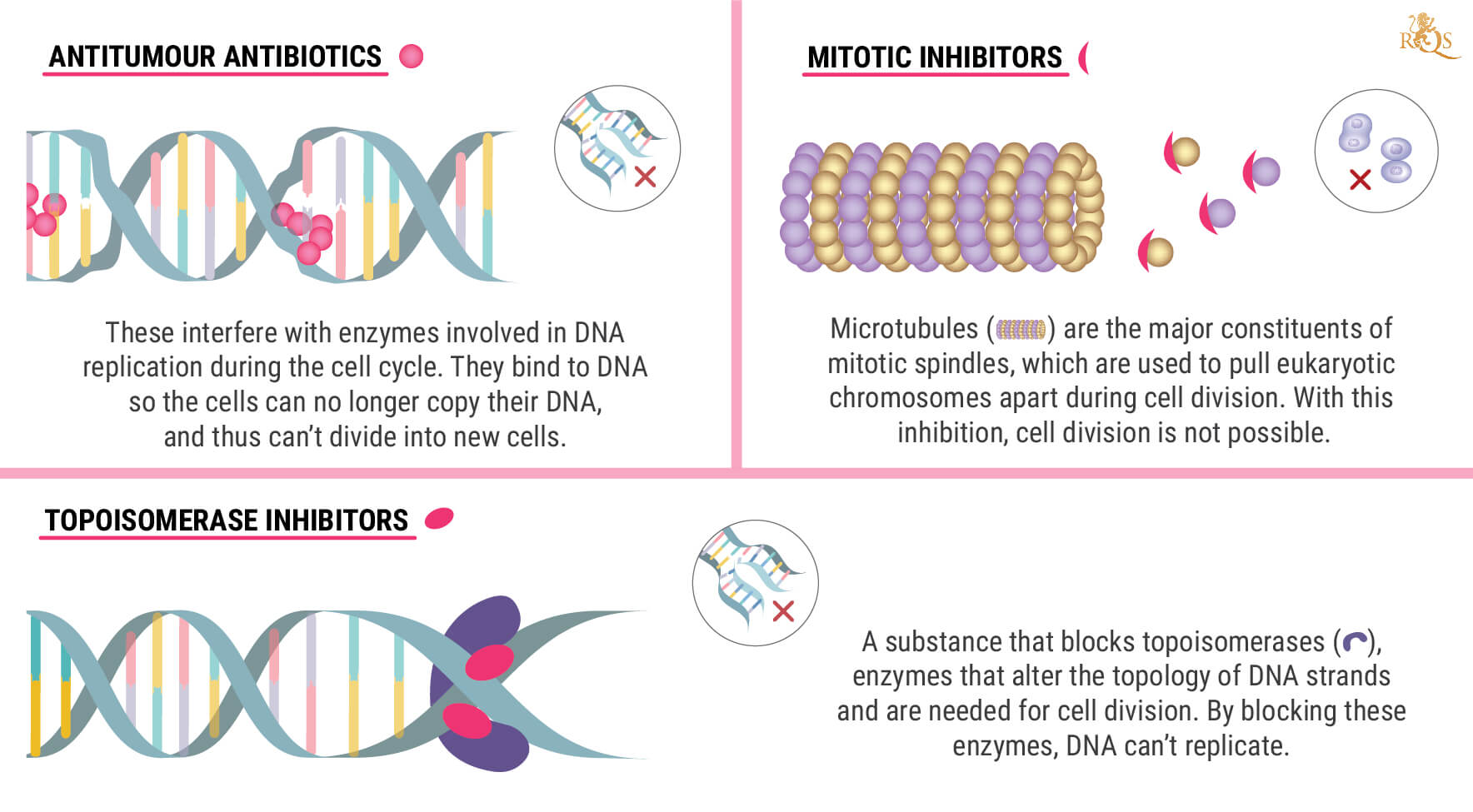
Side Effects of Chemotherapy
Chemotherapy agents are very powerful chemicals. And while they can interfere with the growth and spread of cancer cells, they also often interfere with the proper functioning of healthy cells. In doing so, they create a variety of side effects, including:
- Nausea, vomiting, and loss of appetite
- Diarrhoea or constipation
- Fatigue
- Fever and mouth sores
- Pain, bleeding, and easy bruising
These side effects are usually short term and, in the best cases, can be treated or managed effectively. Sometimes, however, chemotherapy can also cause long-term side effects or damage that doesn’t make itself known until months into or after treatment has occurred.
Some of the long-term or late-onset side effects of chemotherapy include:
- Heart and kidney problems
- Infertility
- Tissue damage, particularly in the lungs or nervous tissue
- An increased risk of developing cancer in the future
Cannabis and Chemotherapy Interaction
While there is still a lot we do not know about cannabis, how it affects the body, and how it could work as a medicine, research is continuing to determine if the herb has a role in the treatment of cancer, or as a complement to traditional chemotherapy.
Anecdotal evidence suggests that many cancer patients (especially those living in areas where cannabis has been legalized to some extent) turn to cannabis, either as an alternative to the traditional therapies available, or to complement them.
The cannabis plant is the most prominent source of plant-based cannabinoids. These compounds share structural and sometimes even functional similarities with the cannabinoids produced naturally by the human body, and can therefore interact with the human endocannabinoid system (ECS).
In doing so, the compounds found in cannabis can impact the vast variety of bodily processes that the ECS normally regulates, and potentially induce effects that cancer/chemotherapy patients find to be beneficial.
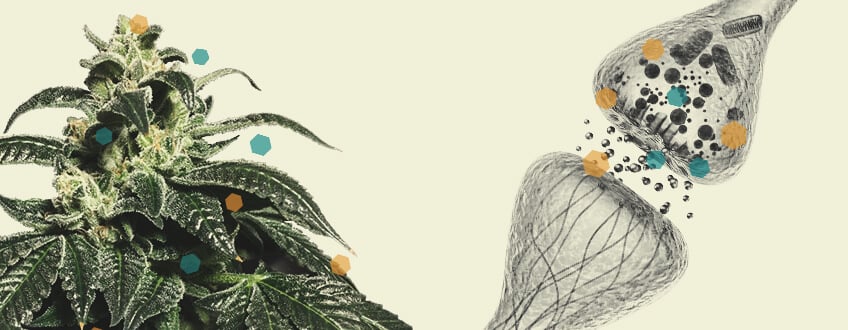
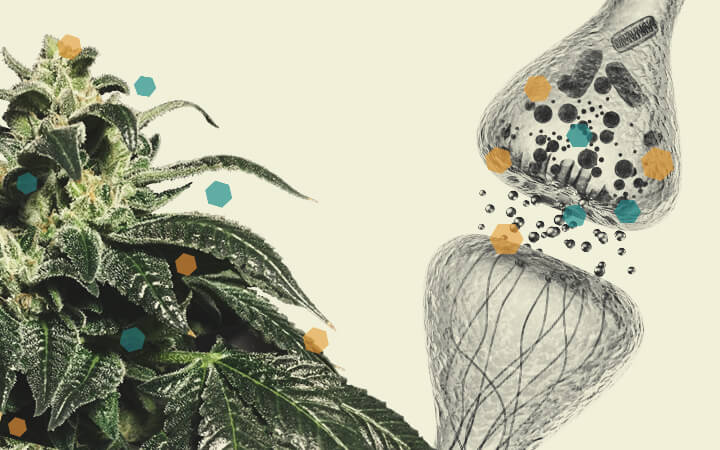
Nausea and Vomiting
Many chemotherapy patients report using cannabis and its derivatives to deal with the nausea, vomiting, and loss of appetite they experience as a result of their treatment. Moreover, many places that have legalized medical cannabis permit medical practitioners to prescribe cannabis to deal with these symptoms, including California, Colorado, Alaska, Argentina, Germany, and numerous others. In fact, the US Food and Drug Administration has already approved two cannabinoid drugs (dronabinol and nabilone) for the treatment of chemotherapy-induced nausea and vomiting.
And slowly, we’re getting more clinical data to help us better understand how cannabis and its compounds might affect nausea and vomiting in different clinical settings. In 2001, for example, the British Medical Journal published a detailed review[1] of investigative literature on the use of medical cannabis to treat chemotherapy-induced nausea and vomiting.
The study compiled and compared results from 30 different randomised trials conducted in 2000 and 2001. The trials measured cannabis’ efficacy as an antiemetic against both placebo drugs as well as traditional antiemetics commonly prescribed to patients undergoing chemotherapy.
Appetite
On top of the nausea and vomiting associated with chemotherapy, many chemo patients also experience a lack of appetite as a side effect of their treatment. After all, we all struggle to eat, or even think about food, when we're nauseous or on the brink of vomiting. How individual patients experience appetite loss as a result of chemotherapy is very personal, but many patients report having trouble eating on the day of their chemotherapy sessions, in particular just before the session and for hours afterward.
Fortunately, many patients who are are lucky enough to have access to medical cannabis find it can really stimulate the appetite. And it's not hard to see why; getting a severe case of "the munchies" after smoking or ingesting cannabis is, after all, very common. This 2019 article[2] published in the Journal of Psychopharmacology, for example, explored the infamous "munchies" and cannabis' effect on appetite in numerous clinical settings.
Furthermore, some countries have even approved cannabis-based appetite stimulants, including dronabinol (although some scientists, researchers, and medical professionals doubt its effectiveness[3] compared to other forms of cannabis).


Pain
Many cancer and chemo patients experience pain, both as a result of their tumours or as a side effect of the chemotherapy agents they are prescribed. This pain often has detrimental effects on a patient's quality of life, and can, over time, also affect their mental health.
Just like with nausea and vomiting, there is a strong base of anecdotal evidence from patients with pain who claim cannabinoids help relieve their symptoms. To help better understand how cannabis might affect the way we experience different kinds of pain (including nociceptive, neuropathic, acute, and chronic pain), a growing body of research is looking into the way cannabinoids and other cannabis compounds might interact with different pain pathways in the body.
In 2011, the US National Cancer Institute put together Cannabis and Cannabinoids PDQ[4], a regularly updated book targeted at both cancer patients and health professionals. The book outlines the many different facets of cannabinoids, how they work, the research being performed on them, and what all this means for cancer patients and their medical teams. The book shines a light on some of the studies conducted on cannabinoid receptors, the endocannabinoid system, and their complex involvement in the way we not only experience, but also treat it.
What Are the Risks of Using Cannabis During Chemotherapy?
Safety is a massive concern when using any kind of drug, and cannabis is no exception. Luckily, the research conducted on cannabis shows that it is very safe, both for recreational and medical use.
All the medications you’ll find at your local pharmacy can potentially cause side effects. Earlier in this article, we shed light on some of the common short and long-term side effects of chemotherapy drugs, which included nausea, vomiting, pain, bleeding, fever, heart problems, and more.
Cannabis can also cause side effects. But, when compared to those of chemotherapy agents, they are extremely mild.
THC, for example, can obviously cause an intoxicating “high”, which some people aren’t familiar with and may find unpleasant. In some people, it can also incite feelings of nervousness or sleepiness, the latter of which may not necessarily be a problem depending on the individual needs of the patient. Some other side effects of THC include:
- Low blood pressure
- Tachycardia
- Bloodshot eyes
- Slowed digestion
- Lightheadedness
Some of the other safety concerns of using medical cannabis involve the smoking of dried cannabis flowers or concentrates, which exposes users to many of the same toxins found in cigarette smoke. Luckily, the increasing popularity and accessibility of vaporizers and cannabis tinctures largely sidesteps this problem.
Finally, one last concern for cancer/chemotherapy patients interested in using cannabis may be dependence and/or tolerance. Over time, cannabis users do develop a tolerance to some cannabinoids, especially THC. In rare cases, users may also develop a dependence on cannabis. However, keep in mind that cannabis is far less addictive than opioids and other drugs prescribed to patients with pain.
Can I Use CBD With Chemotherapy?
Because CBD isn’t intoxicating, it is much easier to access in various parts of the world. In fact, it is possible to buy CBD hemp products in many countries, even those where THC-rich cannabis remains illegal.
Just like with other cannabinoids, there is still a lot we do not know about CBD and its mechanisms of action in the human body. However, it’s largely deemed a safe, non-toxic compound[5], that doesn’t cause the high we associate with THC (not even in very large doses). Moreover, studies suggest that CBD may be able to deliver some of the same benefits as THC, making it a great option for patients living in areas where THC products are illegal or hard to access.
How To Use Cannabis During Chemotherapy
There is no definitive way to use cannabis alongside chemotherapy. If you’re lucky enough to live in an area where cannabis is available to you, make sure to pitch the idea of using it to your doctor and work through the process with them. They’ll be able to provide you with all the information you need.
- Cannabinoids for control of chemotherapy induced nausea and vomiting: quantitative systematic review. https://www.researchgate.net
- Exploring the munchies: An online survey of users' experiences of cannabis effects on appetite and the development of a Cannabinoid Eating Experience Questionnaire - PubMed https://pubmed.ncbi.nlm.nih.gov
- What to Know About Dronabinol vs. Marijuana https://lakewoodmedicalclinic.com
- Cannabis and Cannabinoids (PDQ®) - PDQ Cancer Information Summaries - NCBI Bookshelf https://www.ncbi.nlm.nih.gov
- WHO Expert Committee on Drug Dependence Critical Review: Cannabidiol (CBD) https://www.who.int


























